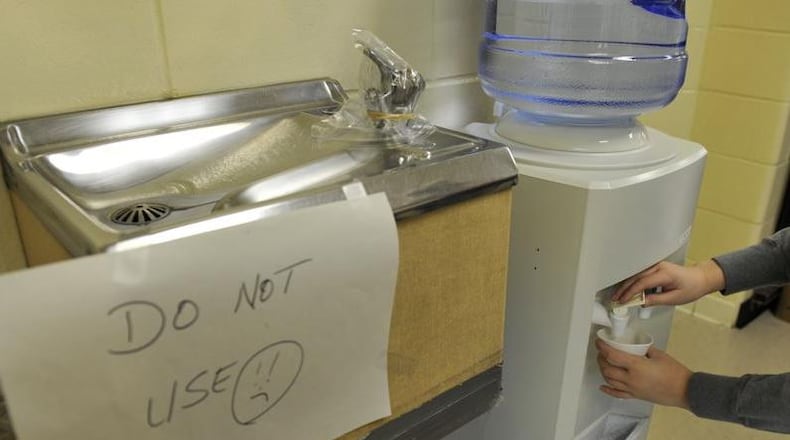This loss of pressure in the distribution system may cause backpressure, backsiphonage, which can occur when a negative pressure, or vacuum, pulls contaminated water or other liquids back into the water supply.
This type of system failure carries with it a high potential that fecal contamination or other disease-causing organisms could enter the distribution system, South Vienna said. These conditions may pose a substantial health risk to people served by the system.
What should I do?
Emergency repairs are underway, but people in South Vienna should not drink the water without boiling it first, the village says, recommending people bring the water to a rolling boil for at least three minutes and then let it cool before using.
Boiling kills bacteria and other organisms in the water. People can also utilize bottled water.
Boiled or bottled water should be used for drinking, making ice, brushing teeth, washing dishes and food preparation until further notice. The boil advisory is likely to last until Thursday, a representative from the village said, and updates will be posted on the village’s website at southvienna.org about when the advisory is officially lifted.
Potential health risks
All stored water, along with other drinks or ice, made recently from this supply of water in South Vienna should be discarded, according to the village.
Inadequately treated water may contain disease-causing organisms. These organisms include bacteria, viruses and parasites, which can cause symptoms such as diarrhea, cramps, nausea, headaches or other symptoms, according to the village.
These organisms may pose a special health risk for infants, young children, some of the elderly and people with severely compromised immune systems.
The symptoms above are not caused only by organisms in drinking water. If you experience any of these symptoms and they persist, you may want to seek medical advice. People at increased risk should seek advice about drinking water from their health care providers.
About the Author
